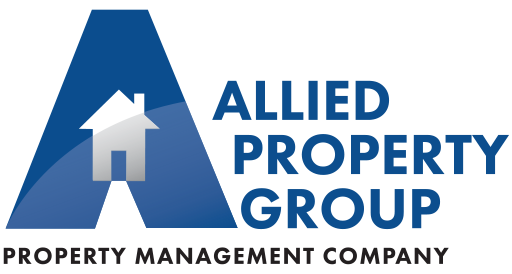A community association’s primary purpose is to provide for the community, business, and governance aspects of the association. Part of that role is making sure homeowners get the critical information and news they need to stay safe, remain healthy, and contribute to the community’s overall well-being. A community website is an incredibly useful tool for associations as they make communication with residents easier and more transparent. Depending on the size of your community, it may even be required.
Benefits of a Community Website
An association website offers a world of convenience to boards, board members, and homeowners alike. For HOA and condo boards, it makes it easy to:
- Share the association’s governing documents, meeting minutes, and more.
- Share information, news, and updates on common facilities and amenities.
- Quickly distribute special announcements
- Ask for volunteers for upcoming events.
- Gather feedback via surveys on things like which activities residents would prefer.
- Use online voting features on the website to pass governing document amendments.
- Collect fees and dues online.
If your condominium is required to have a website, we’ve provided a full list of items that must be posted on it. Just scroll to the bottom of this post.
Many association websites have password-protected member areas where the board can safely share private documents. These areas can also be used to respond to ARC requests and assessments, and address resident concerns. Scroll down to see a full list of items required to be posted on your community’s website.
Homeowners also benefit a great deal from a website as they can:
- Avoid postage costs by paying dues online.
- Easily make facility reservations.
- Submit maintenance requests.
- Stay up-to-date on the latest news and community changes.
Is a Community Website Risky?
Some boards worry that a community website will open the association to lawsuits, particularly from postings about financial matters like late payments or delinquencies. Others worry if they include a community forum, it could become a place where people come to air their grievances and make personal attacks. Finally, some boards wonder if the expense of setting up and maintaining a website would become yet another budgetary challenge to face.
Most legal experts agree there are ways to mitigate website-related risks by doing things like having various levels of access, password-protecting certain areas, and keeping board-related information open to board members only.
When it comes to financial worries, it’s important to keep in mind a website can actually save the association money. The amount saved often offsets the cost entirely to maintain the site.
- Reduced printing and mailing costs for notices, documents, and board meeting reports.
- Secure online payment processing eliminates a lot of day-to-day administrative work and can help save on bank fees.
And because a website is active 24/7 all year long, it’s a reliable source of information for homeowners who no longer have to take up valuable board time with their questions or complaints.
Create an Informed Community
A website makes it easy for everyone to work together to create a community where residents are better informed and more likely to participate in community affairs. Easy to build and update, a community website can host news, notices, resources, announcements, event calendars, member directories, and more. Board benefits like secure payment processing, easy distribution of documents, and handling of maintenance requests make being a board member a much simpler and more enjoyable endeavor.
Documents Required to Be Posted
As promised, below is a list of the documents that are required to be posted on the website of CONDOMINIUM ASSOCIATIONS that have more than 150 units.
- The Condominium Documents to include the Declaration of Condominium, Bylaws, Articles, and Rules and Regulations.
- A list of all contracts and services that the association uses (such as Attorney and CPA information).
- Summaries of bids for materials, equipment, or services which exceed $500 must be maintained on the website for 1 year. In lieu of summaries, complete copies of the bids may be posted.
- The annual budget required by s. 718.112(2)(f) and any proposed budget to be considered at the annual meeting.
- The financial report required by subsection (13) and any monthly income or expense statement to be considered at a meeting. (This is the Audit, Compilation, or Review done by a CPA.)
- The certification of each director required by s. 718.112(2)(d)4.b. This form is under General Forms. If we do not have one on file, we need to get it done ASAP.
- All contracts or transactions between the association and any director, officer, corporation, firm, or association that is not an affiliated condominium association or any other entity in which an association director is also a director or officer and financially interested. To my knowledge, we do not have any that exist.
- Any contract or document regarding a conflict of interest or possible conflict of interest as provided in ss. 468.436(2)(b)6. and 718.3027(3). To my knowledge, we do not have any that exist.
- The notice of any unit owner meeting and the agenda for the meeting, as required by s.718.112(2)(d)3., no later than 14 days before the meeting. The notice must be posted in plain view on the front page of the website, or on a separate subpage of the website labeled “Notices” which is conspicuously visible and linked from the front page. The association must also post on its website any document to be considered and voted on by the owners during the meeting or any document listed on the agenda at least 7 days before the meeting at which the document or the information within the document will be considered.
- Notice of any board meeting, the agenda, and any other document required for the meeting as required by s. 718.112(2)(c), which must be posted no later than the date required for notice pursuant to s. 718.112(2)(c). That is – must be posted 48 hours before the meeting. This includes the Meeting Packets for the Board members. Note that it must be posted 2 days before the meeting.




